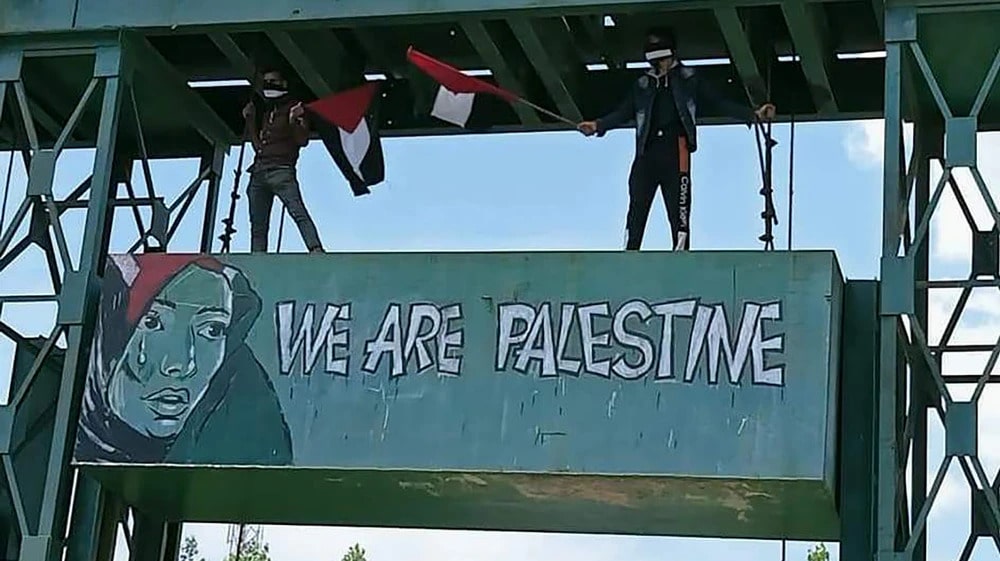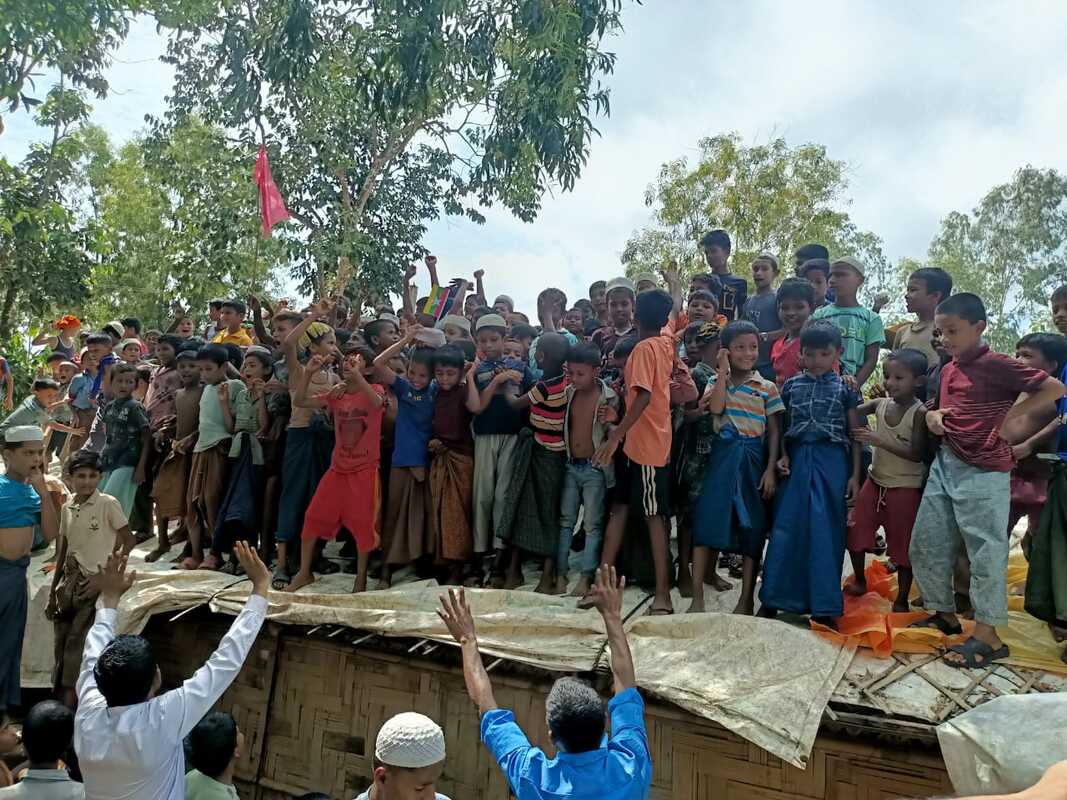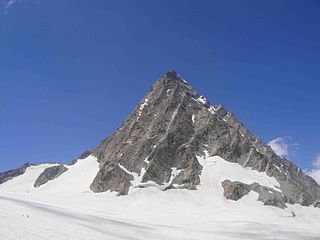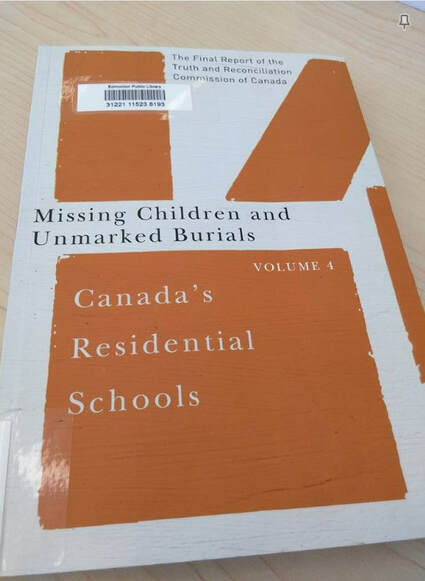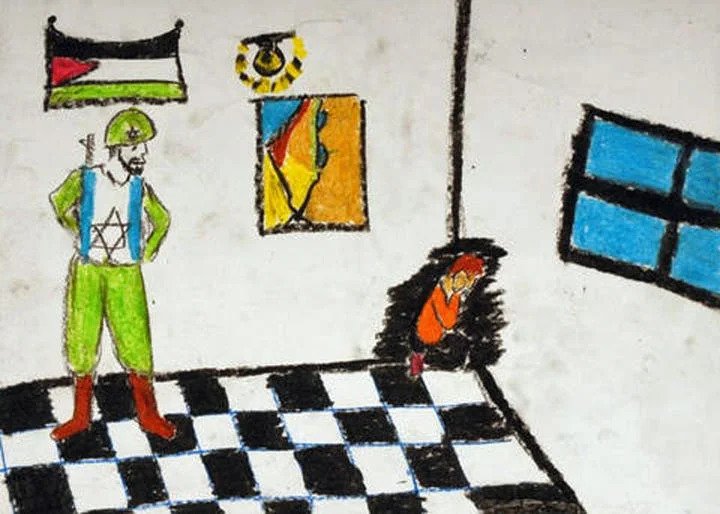|
By Tazeen Hasan
In two far-off lands, on opposite sides of the earth, A story of destruction, of homes and hearth, Kashmir and Palestine, both places we know, Where houses are razed, and families made to go. In Kashmir, the army rolls in with tanks and guns, Bulldozers and explosives, the job has begun, They give no warning, no time to pack, As they shatter the walls, and the roof they hack. In Palestine, it's the Israeli army's might, The bulldozers come, day or night, With no care for the people, who call it home, Their houses are leveled, to the ground they're thrown. Both places are scarred, by these acts of violence, As families are left, with no place to find solace, Their memories, their dreams, their hopes and their fears, Are crushed, shattered, in a flood of tears. The world looks on, with a deafening silence, As the people of Kashmir and Palestine, Are left to bear, the brunt of this hate, Their stories, their pain, they cannot abate. Yet, amidst all this, they rise up again, With a resilience that's hard to contain, Their spirit, their strength, they will not yield, For in their hearts, a flame still burns, unhealed. So, let us stand with them, in their darkest hour, And lift our voices, with all our power, To tell the world, that we will not be still, Till their houses are rebuilt, on the same old hill. Credit: MD Jamal, Rohingya volunteerOnce upon a time, there was a young Rohingya named Sirajul Islam, known as Ajus Khan on every social media platform.
Ajus lived in a small village called Maungdaw Baggona Para, in Myanmar, with family and friends, surrounded by lush green forests and rolling hills. He loved their homeland and cherished the memories they had made there. One day, the Myanmar military launched a brutal crackdown on the Rohingya population, forcing his family to flee their home. They escaped to Bangladesh and ended up in the largest Rohingya refugee camp in the world, located in Kutupalong, Ukhiya, Cox's Bazar. Life in the refugee camp was difficult and painful. His family were forced to live in cramped, makeshift shelters with no privacy or comfort. They struggled to find enough food and clean water. There was no access to proper medical care. Worst of all, there were no schools in the camp, which meant that Ajus and the other children had no opportunity to learn and grow. Despite the harsh conditions, Ajus remained determined to survive and thrive. He spent his days helping his family and assisting his community, always searching for ways to make life better for those around them. He made new friends and found comfort in the support of others who had been through similar experiences. Years passed and Ajus continued to live in the camps, always hoping for a better future. They remained strong and resilient, never giving up in the face of adversity. And although life in the camp was difficult, Ajust learned the true meaning of community and the power of hope. Now, over five years later, Ajus remains in the camp, but his spirit remains unbroken. He knows that one day, he’ll be able to return to his homeland and rebuild their lives. And until that day comes, Ajus will continue to fight for their survival and the endurance of his fellow refugees. This is a personal reflection written by Sirajul Islam, a Rohingya youth located in Kutupalong refugee camp in Cox’s Bazar, Bangladesh. With special thanks to Tazeen Hasan. Kolahoi Glacier (Creative Common License) January 25th, 2023
I am a Kashmiri glacier, My name is the Kolahoi glacier, And I am witnessing an environmental genocide, This message is an SOS signal to the world, This matter needs your immediate attention. In the olden days, people used to call me the goddess of light, Kashmiris depend on me and other glaciers for their agricultural needs, We provide water for their crops and fruit orchards, Without us, they will not survive, And we are disappearing, Because of the occupation, Because of the colonization of the Kashmir valley, And this is an environmental genocide, That nobody cares. Experts say my size is reduced by 23 percent, And that too in just three decades, Himalayan glaciers are melting at a faster rate than other regions, And Kashmiri glaciers are melting faster than other Himalayan glaciers, If we continue to melt at this rate, There will be no water for Kashmiris, There will be no food for them, And this is an environmental genocide, That nobody cares. The human activity of one million Indian troops Experts say the reason is human activity, But I want to tell the world, It is not the usual human activity, that causes us to melt at this alarming rate, It is the activity of around one million Indian troops; Which is meant to maintain the occupation of Kashmir valley, With their arrival, I witnessed massive deforestation, To make room for their barracks, They cut forests to build shooting ranges across the valley, Their heavy military vehicles emitted greenhouses gases, For more than thirty years, Their debris and wastes destroyed the climate of this pristine valley. And consequently, other glaciers are disappearing at an alarming rate. If we continue to melt at this rate, There will be no water for Kashmiris, There will be no food for them, And this is an environmental genocide, That nobody cares. And this is not the end! Religious Tourism Despite warnings from the experts, That if they did not regulate religious tourism, Kolahoi glacier will disappear, The Indian government refused to restrict the number of pilgrims, Hindu nationalist groups campaigned to attract a million tourists for Amarnath Yatra, Consequently, We are melting at an alarming rate, If we continue to melt at this rate; There will be no water for Kashmiris, There will be no food for Kashmiris, And this is an environmental genocide, That nobody cares. The occupational forces burned houses and shops, And even the entire village, To collectively punish Kashmiris, Because they demand self-determination, And this practice is damaging the environment, Consequently, We are melting at an alarming rate, If we continue to melt at this rate; There will be no water for Kashmiris. And this is an environmental genocide, That nobody cares. I am a Kashmiri glacier, My name is Kolahoi glacier, And I am witnessing an environmental genocide, This message is an SOS signal to the world, This matter needs your immediate attention. Written by Tazeen Hasan, Campaign Manager for Justice For All Canada. Our 2022 was defined by incredible Canadians who supported our work in more ways than one!
Justice For All Canada is grateful to human rights groups, Mosques and interfaith centres, community service organizations, volunteers and countless others across Canada for generously lending their platforms for human rights advocacy and anti-genocide initiatives. We appreciate everyone—both at the forefront and behind the scenes—for helping our team pave the way for greater equality for Muslims and other minorities under persecution around the world. A Muslim's Perspective Al-Falah Islamic Centre Al-Nadwa Educational Islamic Centre, Markham Al Rayan Islamic Centre, Courice Al-Rashid Mosque, Edmonton Being ME Canadian Council of Imams Canadian Muslim News Canadians United Against Hate Centre for Islamic Knowledge, Mississauga Canadians in Support of Refugees in Dire Need (CSRDN) Community Talk Danforth Islamic Centre, Toronto Dar Al-Sunnah, Edmonton Eastern Turkestan Association of Canada (ETAC) Edmonton Council of Imams Emmanuel College, UofT Friends of Kashmir GTA Masajid Group Human Concern International (HCI) ICNA Canada Sisters, Edmonton iLead Conference Incisive Strategy Institute of Islamic Studies, UofT International Civil Liberties Monitoring Group (ICLMG) Islamic Community Centre of Milton (ICCM) Islamic Information and Dawah Centre Islamic Institute of Toronto (IIT) Islamic Society of Markham (ISM) ISNA Canada Jami Omar, Ottawa Jamia Riyadhul Jannah, Edmonton Justice for Soli KAICIID International Dialogue Centre Kanata Muslim Association (KMA), Ottawa Markaz-ul-Islam, Edmonton Masjid Al Fatima, Edmonton Masjid Al-Jannah, Toronto Munk School of Global Affairs & Public Policy Muslim Association of Canada (MAC) Muslim Network TV MuslimFest National Canadian Council of Muslims (NCCM) Nisa Helpline Ottawa Muslim Association (OMA) Rays of Hope Reviving the Islamic Spirit (RIS) Rohingya Centre of Canada, Kitchener Sayeda Khadija Centre, Mississauga Share2Care South Asian Dalit Adivasi Network (SADAN) Stand4Uyghurs South Asian Diaspora Action Collective (SADAC) Toronto Islamic Centre Uyghur Rights Advocacy Project York Region Muslims Zulfa Foundation It was an honour to join the Edmonton chapter of “Justice for All Canada” fundraiser on Sunday, December 4, 2022. Thank you Tazeen Hasan, for the warm invitation you extended to me and my husband Asher.
I, as a Christian, and Asher as Jewish, came in the spirit of solidarity with the goals of Justice For All Canada. We came in the spirit of joining the Muslim Ummah – to expand this community of believers who care deeply about human rights for all. We came in the spirit of humility to God/Allah who we both look to for wisdom to respond to violence in ways that will bring the powerful to their knees without adding to the violence: so that violence can cease and peace with justice for all can reign. The stories that were shared connected me to the present realities of deep, ongoing, long-standing and quickly evolving injustices to minority groups that JFA focuses on. The poetry connected us to the Olive Tree, the symbol of rootedness to land, and fruitfulness and resilience – the memory of peace, and the longing for peace. The story of the Palestinian youth who was murdered for standing up to a settler – for not submitting to the oppressor – captured the anger and the sorrow of our brothers and sisters living under occupation for 70 years. I have met Christian and Muslim Palestinians who clearly state: we have no hatred of Jews; it is the extremist settlers, the military, and a government that allows them to act with impunity that we oppose. The Kashmir reality of their extreme militarized society was another reminder of a community held hostage by violence. And the impassioned plea by Mehliya to help us understand the dire situation of the Uighurs in East Turkistan. When our ability to get updates and stories on the genocidal agenda of the Chinese government is compromised, our work to get the truth out becomes even more urgent. A theme I heard from several of the speakers was the danger of our complacency. The encouragement to put our faith into action reminded me of a book I have been reading by Christian theologian Safwat Marzouk. He suggests that our faith community includes those of us who are settled, and those of us who are refugees, migrants – i.e. unsettled. For us to remain well-connected to our global faith community, we, the settled need to challenge ourselves to bring into our consciousness and prayers – our dua – the struggles and injustices of those whose life experiences are unsettled. I heard the speakers urging us to unsettle ourselves in order to act! I am so grateful to the organizers of this event for helping me connect with these stories. Connecting is only the first step. The follow-up is action. “Justice for All” gave us concrete ways to put our deep concern for human rights into action. One is to help fund an organization that speaks out on our behalf for just policies from our Canadian government regarding treatment of minorities in countries with whom Canada has relations. Another is to find ways locally to educate our communities and bring people on board to increase our voice and influence. Let us not stop with this urgent work with the fundraiser event. Let us work together – across communities – for the good of us all! The following essay was written by Tazeen Hasan, as part of a Harvard assignment in 2017.
"Anytime I passed someone, anytime I hit someone during my play at hockey or skiing, it would be John Comeau," says Harold Cook, 68, a residential school survivor who was sexually assaulted by Comeau, a supervisor at Grollier Hall Residential School in Northwest Territories. Sporting a dark pink shirt and a snow jacket, with wrinkles on his face, he talks firmly and slowly. "RCMP [police] caught me from a fishing camp when I was thirteen," he says. Cook was born in Fort Smith, a town in Northwest Territories, in 1949. He was flown to Grollier Hall Indian Residential School in Inuvik, 3588 kilometers from his hometown. "My parents could be jailed if they had refused to send me," he adds. Between 1867 and 1996, some 150,000 Aboriginal children were sent to residential schools across Canada as the government and missionaries agreed that in order to "civilize and Christianize" them, it was necessary to separate them from their parents and their home communities, says the Truth and Reconciliation Commission report, which published the six-year official investigation after interviewing 7000 survivors from these schools. Cook says that discipline at school was harsh and abusive. "We would get a slap if we spoke our language. Latin was the only language we were allowed to speak," says Cook. Students were constantly indoctrinated at school, "We were made to hate our culture and parents," says Cook. "To maintain discipline, runaway children were beaten with a leather strap, like criminals were flogged in the olden days," says Cook. The TRC report says bare-buttock thrashing in front of other children was a common practice in these schools. "Even the legal system supported corporal punishments," it adds. "He used to read stories for us before bedtime. I remember him staring at me while the boys were taking a bath in the common shower room," says Cook. "At night, he grabbed me outside the bathroom and assaulted me in his bedroom," says Cook. Victims rarely reported these incidents, but Cook reported to Father Max Ruyant Omi, the school principal, and Sister Gilbert, but he was not believed. “They said people of God do not do bad things," says Cook. Despite being a good ice hockey player and skier, Cook became a victim of self-misery and began using drugs. "I carried this shame and guilt for another 35 years," says Cook. But his trauma did not stop him. He joined the University of Alaska and was selected for the cross-Canada ski team. He left the university to avail an offer to join an ice hockey team in Sweden and remained there for the next four years. He finally decided to testify against his abuser in 1998. Four Grollier Hall supervisors, including Comeau, were finally charged and convicted of sexual abuse after multiple victims came forward. "It was painful for him [Cook] to speak of what happened that night," says Theodore Fontaine, author of the memoirs (singular) Broken Circle: The Dark Legacy of Residential Schools. Fontaine was Cook's friend who himself began attending a residential school at the age of seven, and faced sexual assaults throughout his stay by the staff. "The memories of those nights always haunt us," says Fontaine. "Healing never stops." Cook joined TSOW-TUN LE LUM Society, an Aboriginal-run healing center in British Columbia, to seek help for his never-ending mental trauma. Gradually, he left drugs and to this day, he is sober now. However, his medical reports show he still suffers from post-traumatic stress disorder. "I will never be healed, but I shall continue with my own healing journey until I leave this world," he says with a sigh. Cook’s journey certainly did not end here. Despite his perpetual psychological problems, he dedicated himself to supporting residential school victims, the survivors say. Cook worked as a crown witness coordinator with RCMP [police] to assist victims of sexual assault and abuse from 1998 to 2015. During this period, Cook worked with hundreds of survivors in the provinces of the Northwest Territories, Alberta, British Columbia, Manitoba and Saskatchewan. Over the years, he has closely monitored the prosecutions of abusers, healing societies' politics and the intergenerational impact of residential schools. "He [Cook] showed me a path of forgiveness. He taught me how to live," says Roxane Landry, who says her three generations suffered in residential schools. Cook says that the next generations of survivors who are not direct victims of the residential school system are also experiencing psychological problems. "We transferred our trauma to our children as we do not know how to be a parent," he adds. Rising suicide rates in First Nations children are linked to the generational impact of residential schools, says Cook. "Survivors believe that love and discipline come from the fist." According to a study by Canada's national statistical agency, Statistics Canada, one in five aboriginal people have suicidal thoughts at some point in their lives. Actual suicide rate may be much higher as this study does not include the communities on Reserves. Cook says he feels pride that he left drinking and is now a good model for his grandson. He is grateful that he has grandchildren to whom he presents the annual government compensation he receives as a victim. Commenting on the recent Conservative Senator Lynn Beyak statement, who said that the TRC report overshadowed the "good deeds" of "well-intentioned" residential school workers, such as converting some of the students to Christianity, Cook says that these indifferent statements "support a genocide" and are "nothing but revictimization." Cook says reconciliation for him is the right to be believed. "My only solace lies in the fact that someone in authority finally believes me," he adds. My name is Hasan Tamimi.
I became blind in Israeli custody when I was 17. Due to medical negligence during the detention. While I had a medical condition affecting my kidneys and liver at the time, I was arrested for throwing stones. Even though my mother and family informed the police about my medical condition; I was denied critical medicines for two months. When I was detained, my doctor told my mother, If I am not given medicines, I may go into a coma, Or something terrible may happen to me. I had a medical condition affecting my kidneys and liver. This required regular medications; and a strict diet. The Israeli soldiers denied medications, Kept saying they are checking them; for two months. And was finally taken to the hospital by guards, When other prisoners protested. But by then, I had gone into a coma I remained in a coma for three days, I eventually lost my eyesight due to nerve damage. When I woke up, I couldn't see anything. My mother was sitting beside me. I asked my mother, What is going on? She told me, you won't be able to see anymore. Doctors told us this is a permanent loss. I said to her, ‘trust in God’. Israeli soldiers mistreated me in the hospital too. I was handcuffed to the bed. When I wanted to use the bathroom, The soldiers wouldn't let me, They would bring a box for me to urinate, When I would ask for water, They would give me a small cup of water, Which wasn't enough to quench my thirst, I am home now, Trying to adjust to life without eyesight, The blindness has affected my life, I can't study anymore, I can't see my family and friends. I pray to God to restore my eyesight. This poetic depiction is based on the real-life story of 18-year-old Palestinian youth detainee Hassan Tamimi, who was subjected to medical negligence during his detention by Israeli forces. Hassan was suffering from liver and kidney issues since early childhood. He required a particular diet and treatment; however, Israel did not allow Hassan his medication and he eventually lost his eyesight. Written by a Canadian activist for prisoners of conscience. In July and August 2022, Justice For All Canada co-organized back-to-back demonstrations protesting the inhumane persecution of Uighurs and Kashmiris. Although these groups represent different struggles and lived experiences, both minorities share in common grievances related to their security, equality, livelihood and wellbeing. August 31st, 2022 By Saleha Faruque Uighurs and Kashmiris represent Indigenous peoples belonging to native lands in Asia; East Turkestan is home to 12 million Uighurs, whereas 12.5 million Kashmiris live in Jammu and Kashmir. Both regions exist under intense occupation and administration by majoritarian governments. Kashmiris live in Jammu and Kashmir, located in the extreme northwest of India. The Indian state currently occupies two-thirds of this territory. According to Human Rights Watch, India’s ruling nationalist government is responsible for revoking constitutional autonomy granted to Kashmir. East Turkestan has also been colonized, controlled and occupied by China’s government since 1949. Occupying powers in East Turkestan and Kashmir have contributed to severe human rights violations against their minority populations. This includes arbitrary mass arrest, suppression of thought and censorship, illegal settler activities, sexual and gender-based violence, including other crimes punishable under international human rights laws. Kashmir Protest in Mississauga, Ontario Celebration Square is a public space located in the heart of Ontario’s Mississauga city. The venue holds years’ worth of concerts, festivals and community events—an ideal location to amplify voices for Kashmiri rights. The Kashmiri protest was co-organized between Justice For All Canada and Friends of Kashmir Canada. Our respective groups invited students, community leaders, professionals and Kashmiris to gather, share thoughts, and broadcast a strong message in support of the Kashmiri people. The event also drew Kashmiri Canadians from all backgrounds and ages. Because of the successful rally. some of them could finally witness people coming together for the sake of this neglected cause. When it comes to the issue of Kashmiri rights, support is hard to come by. Unfortunately, the pervasive nature of India’s right-wing BJP government makes it difficult for impacted Kashmiris to voice their opinions. Luckily, non-profit organizations like Just Peace Advocates frequently use their platform and expertise to conduct strong advocacy demanding an end to the hidden government-imposed oppression plaguing Kashmir’s population. Uighur Protest in Toronto
It was a warm Sunday afternoon when hundreds of activists, student groups, volunteers, families and Uighur people gathered outside the Chinese consulate in Toronto. Heartfelt testimonies, statements and peaceful chants were delivered by a crowd unified against the ongoing genocide of Uighurs. Anti-genocide signs were held high, and by the day’s end, activists formed emotional connections with one another. Consulate workers entered and exited the building, avoiding eye contact and maintaining stoic expressions throughout. The successful protest was part of a global solidarity movement launched by Stand 4 Uyghurs, an advocacy project of UK-based website Islam21C. In addition to the protest, the #Stand4Uyghurs initiative also included a global khutba campaign in major cities across the UK, Australia, the US and Canada. Justice For All Canada participated by urging hundreds of nationwide Imams and Mosques to dedicate their Friday khutba (lecture) to discussing crimes against humanity inflicting Uighur Muslims under China’s communist government. Canada’s Government is Responsible Justice For All Canada is a human rights and advocacy organization committed to preventing and halting anti-minority Islamophobia, hate crimes, ongoing genocide or genocide incitement in regions like Kashmir, East Turkestan, Palestine, Sri Lanka, Burma and India. As 2022 presents the first non-pandemic summer, activists look forward to continue assembling under shared goals of peace and equality for the world’s most persecuted minorities. |

